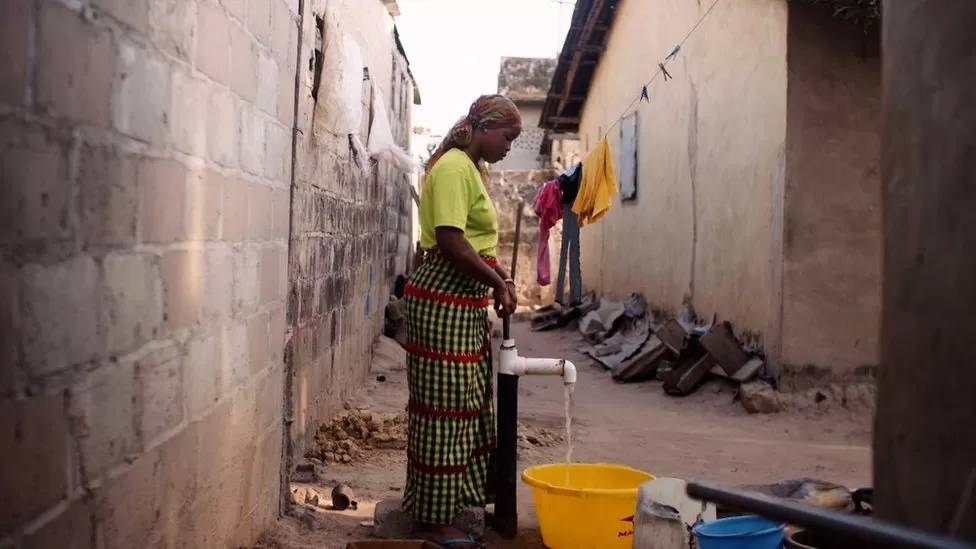A charity which has provided safe drinking water to thousands of people in Africa has reached a key milestone.
Fountain of Life, based in Chippenham, was set up after CEO Mark Provis visited Senegal.
He was horrified to learn mothers were adding bleach to contaminated water before giving it to their children.
Now the company is celebrating creating 250 boreholes in the country since 2018.
Its aim is to provide thousands of people with affordable, sustainable and safe drinking water, as well as for improved hygiene,
According to the charity’s research, each borehole helps around 100 people.
Mr Provis had done work in Senegal since 2009 meeting communities, but it wasn’t until 2018 that he decided to set up the charity after meeting the family of a friend.
A woman with two children either side.
CEO Mark Provis met a family forced to use water from a contaminated well – they would mix in bleach to clean it for the children
He saw a young girl playing and asked her mother where their water came from.
“She explained there was a community well which they all used,” he said.
‘No choice’
“But it was an open well, which was full of dirt, rubbish, animal droppings, so they knew the water was contaminated.
“But they had no other choice but to drink it anyway.
“She went on to explain how they would add bleach to the water before drinking it – especially before giving it to children.
“It was in that moment when I silently thought to myself somebody has got to do something about this.”
People grouped around and holding a pipe as part of making a borehole.
There is now an almost full-time team working with the charity to set up boreholes
Mark Provis decided it would have to be him. After setting up the charity, he went to Texas to meet an expert in manually creating boreholes and trained with him.
Returning to Senegal, he formed a team of volunteers and passed on the knowledge.
There is now a team of six there, working almost full-time, creating the boreholes, with £180 needed to construct each one.
The difference between a borehole and a well is that a well is wider and more open to contamination while a borehole is a closed system.
A woman next to a wall pumps water from a borehole in a bucket.
Mr Provis believes boreholes are a quicker way of getting clean water to people in Senegal
Mr Provis said the work has been fantastic: “There’s no better feeling in the world.
“A lady we helped – her husband died four years ago. He had a heart attack, leaving his wife and children. She was telling me what a struggle it was.
“So we built a borehole for her at her property. Just to see the smile on her face and the way she took my hand and just said ‘Mark I have no words other than thank you…I don’t know what to say to you.’ I said ‘you don’t have to say anything, your smile says it all.”
“There are people who have now started businesses because they know have a source of water on their property.
“We spoke to a lady who has started who started a business making and selling juice using hibiscus flowers.
“She pumps water from the borehole, soaks it in hibiscus, adds sugar, puts it in the freezer and sells it the next day at the market. She’s earning money because of her access to water.”
Mr Provis believes installing boreholes at people’s homes is a more reliable way of getting clean water to everyone than constructing big piped systems: “It can be done more quickly using locally sourced materials.
“If one borehole breaks, your neighbour can help. If a pipe breaks, a whole town can be without water.
“We don’t know how lucky we are. For those in Senegal who have piped water, it’s a very unreliable service. “
